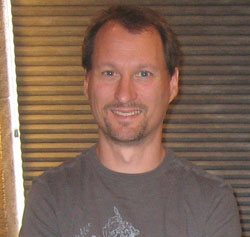
Prior to the eighties, mixing engineers often apprenticed to experienced, established engineers. Now there are schools where many engineers learn the craft. Are there similar programs for aspiring mastering engineers? Do you feel that it is best to work with an established mastering engineer while learning the craft?
I’m not aware of any schools pumping out mastering engineers for the simple reason that there just isn’t a big enough market for it.
I don’t know the general ratio, but in my town there are about 200 recording studios, big and small, and only two full time, dedicated mastering studios. It’s not the growth industry the magazines make it out to be. Most MEs had some sort of apprenticeship with a more experienced engineer to learn the craft.
I had two mentors early in my career. The first was a classical recording engineer who taught me many things about sound and listening, including the importance of knowing what real instruments sound like in real world environments.
The second was a seasoned mastering engineer who taught me the mechanics of making transparent transfers and keeping the machinery running properly.That’s what mastering was about when I started. We were trying to preserve the integrity of the sound we were given while transferring it onto another medium.
The introduction of heavy processing is a relatively recent phenomenon. Now we are asked to enhance the sound of the original recordings in ways we never imagined 20 years ago.
I’ve tried to return the favor to a few younger engineers and what I find is that it’s relatively easy to teach the things I learned from my mentors but rather more difficult to teach the things I’ve had to learn on my own.
I guess one can teach creative techniques but I’m not sure one can teach creativity itself. I’ve certainly learned tricks of the trade, but how to make something sound better than when it came in is one of those ephemeral things that you just need to figure out for yourself after lots and lots of practice.
You are a musician as well as an engineer. Does being a musician help when you are wearing your ME hat or are they completely separate endeavors?
It’s not a requirement, and I know many MEs who are not musicians, but I definitely feel more connected to the music that way.
According to your bio, you are a member of a number of professional organizations including the AES and NARAS. How important is membership in a trade organization to furthering one’s career? Do you find that by being a voting member of NARAS you feel more “plugged in” to the industry?
I think the best way to further one’s career is to build a good reputation by doing good work. Belonging to a professional organization probably doesn’t bring in any work directly. They’re more about sharing ideas and building a sense of community.
